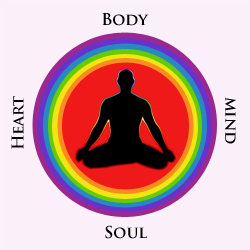Overcoming Fatigue in Business and Personal Life
 Work life balance is an often used term that suggests we use life to balance work. I’m of the opinion that this is a relic from the 50’s and 60’s where Dad used come home wounded and basically the house revolved around getting him ready to go back into battle (work) the next day… Certainly my home was like that. We’d tiptoe around Dad’s moods, and routines, he’d be served what he hoped would be an edible meal (my step mom was an alcoholic and prone to burning everything she cooked), and quarrels between my brother and I would be halted with the harsh words “can’t you see your father is exhausted from working to put food on the table?” which of course was guilt ridden.
Work life balance is an often used term that suggests we use life to balance work. I’m of the opinion that this is a relic from the 50’s and 60’s where Dad used come home wounded and basically the house revolved around getting him ready to go back into battle (work) the next day… Certainly my home was like that. We’d tiptoe around Dad’s moods, and routines, he’d be served what he hoped would be an edible meal (my step mom was an alcoholic and prone to burning everything she cooked), and quarrels between my brother and I would be halted with the harsh words “can’t you see your father is exhausted from working to put food on the table?” which of course was guilt ridden.
Work life balance sends fatigue home. Yesterday I went into Sydney CBD for a meeting and watched people leave their offices. Sure, it’s a few days into the new working year and many people are suffering post holiday blues, but the looks on people’s faces told a huge story. They were exhausted and were on their way to “balance” that exhaustion at home.
One client said “my partner is not the person I married. They come home so tired from the day there’s nothing left for us. Sure they play with the kids but their mood and emotional temperament is all fragile and sensitive. We have to walk on egg shells to prevent a blow out” I think he’s not alone in this complaint.
Asking your family to pay their dues for your work exhaustion is understandable. You want credit for the effort you put in to “put bread on the table” but really guys, really? Is that the best way to help your family appreciate the effort you put into your work. Exhaustion and emotional compensation? I’m a bit skeptical that this is the best angle you’ve got.
Lets look at an alternative I’ve been proposing for the last 20 years. “Come home from work with more energy than you left home with. Mentally and Physically” Is it possible? I’d say 70% of the time absolutely, 20% of the time it’s marginal and 10% no…
How?
1. Change the model of work from work life balance to WORK WORK balance… balance your time at work with recuperation.
2. Get as much exposure to nature as possible during, before and after work… sit under a tree for lunch, have meetings outdoors, put nature screen savers on your computer screen (Apple do this already)… it’s important.
3. Take micro breaks you don’t need much more than 60 seconds every hour to check in with yourself. If you find you are stressed, tired, hyper, or depressed use the Inspiration Wheel to get “Back on Track.” Don’t work fatigue or emotion on top of fatigue and emotion. The cost increases exponentially.
4. Use team and partner agreements at work to allow others to give you early warning interventions. Agree with team mates at work that if you show signs of fatigue or emotional turbulence they can give you a heads up, simply using a hand signal. And, if necessary engage in helping you clear it before it compounds.
5. Exercise every day… not just for weight control or for training for a marathon, exercise for looking and feeling right. That means, in my opinion, morning exercise is not fatiguing, is 20 minutes of awareness, soul food and stamina building with a “corpse pose” relaxation for ten minutes afterward. Do any heavy training for weight control and event preparation at other times (afternoon at 3pm is ideal).
So, they are just a few ideas. If you have more, I’d love to hear from you in the comments below…
From the heart of Chris









